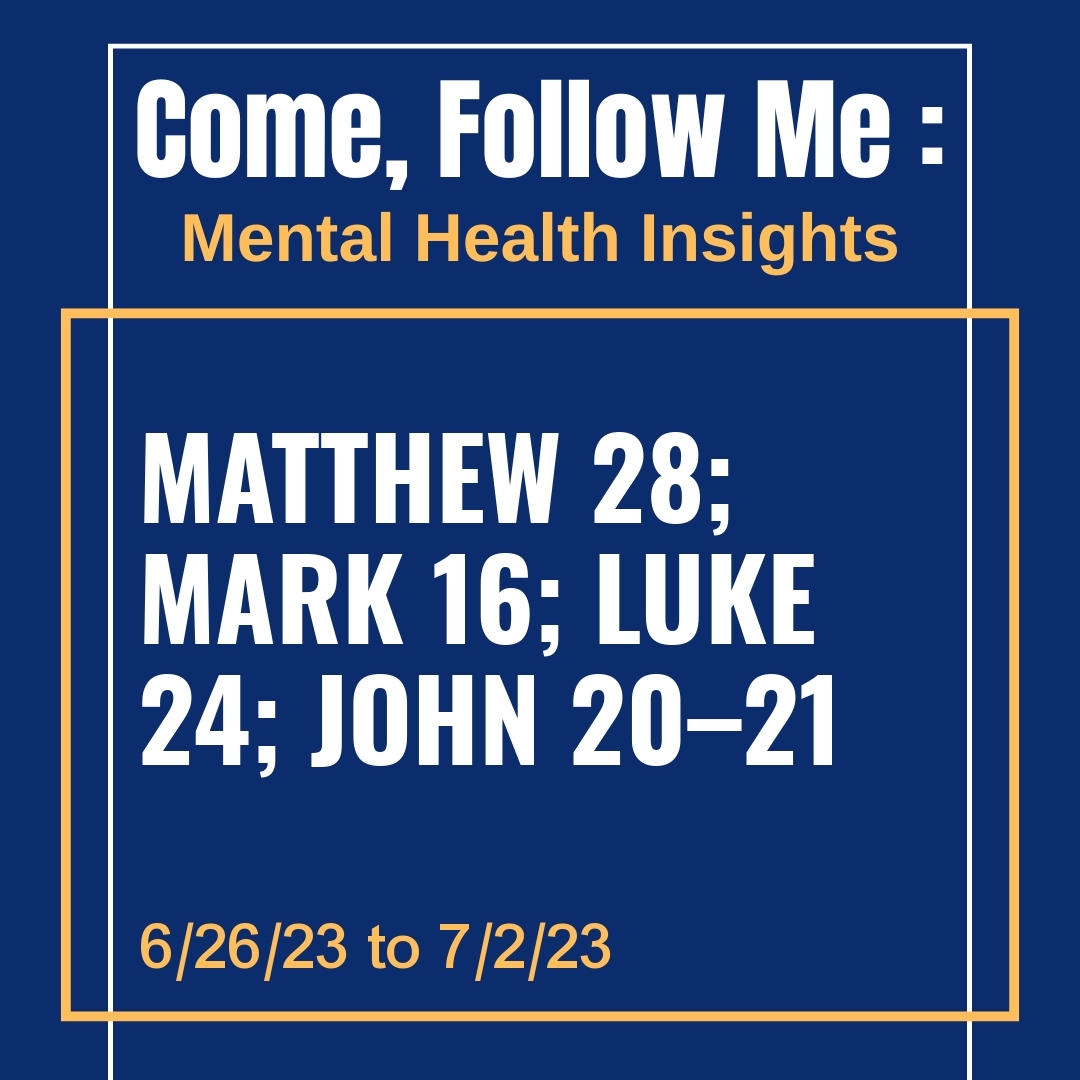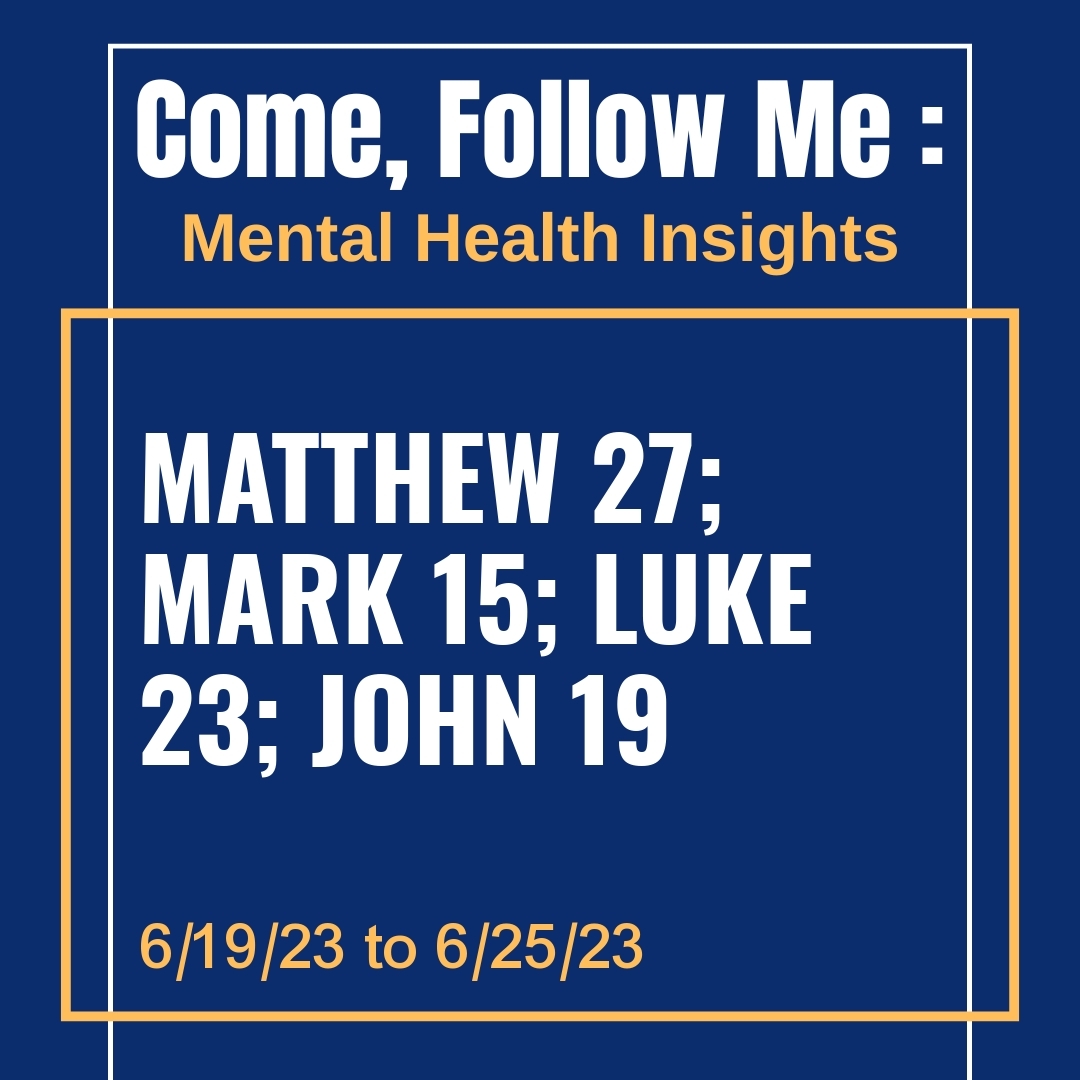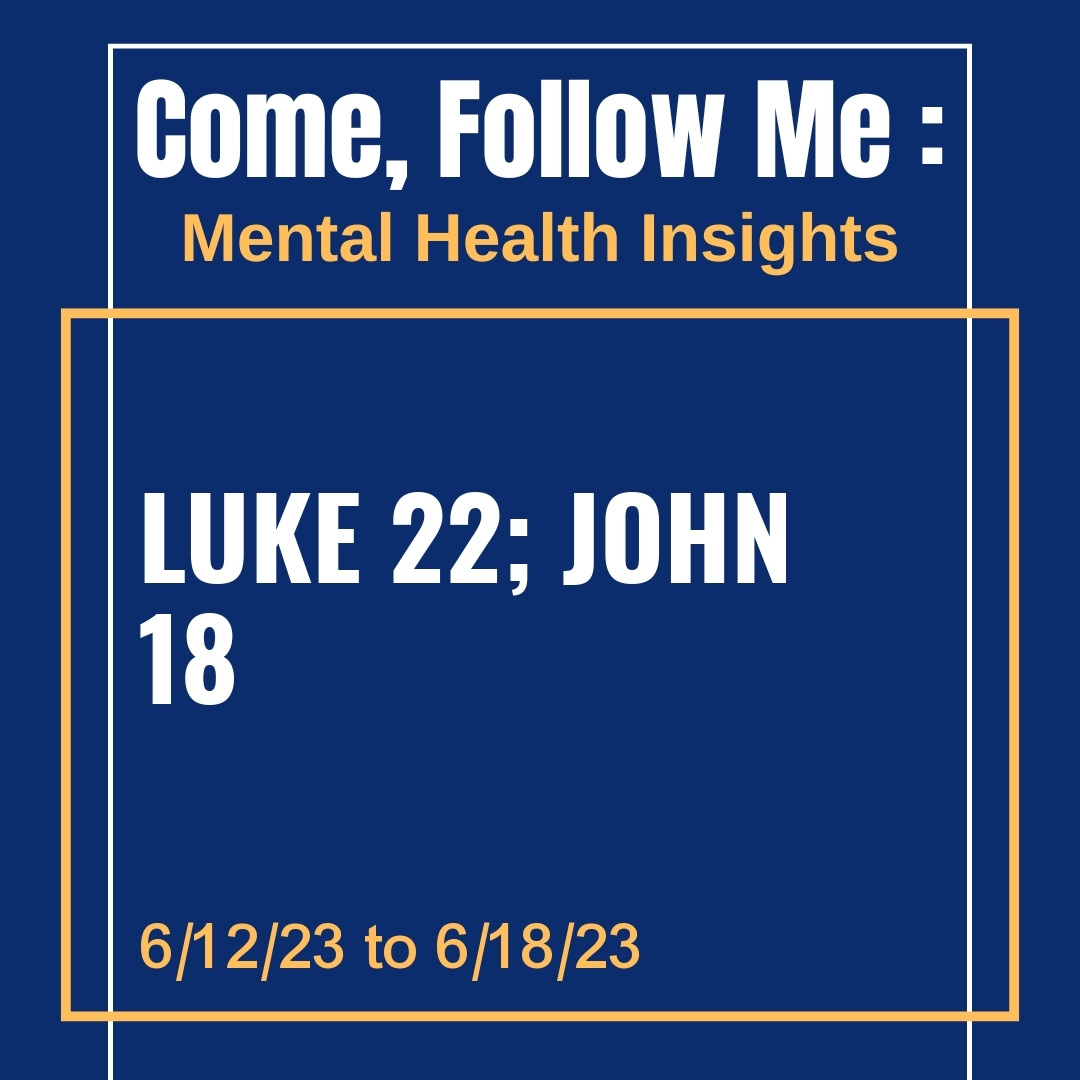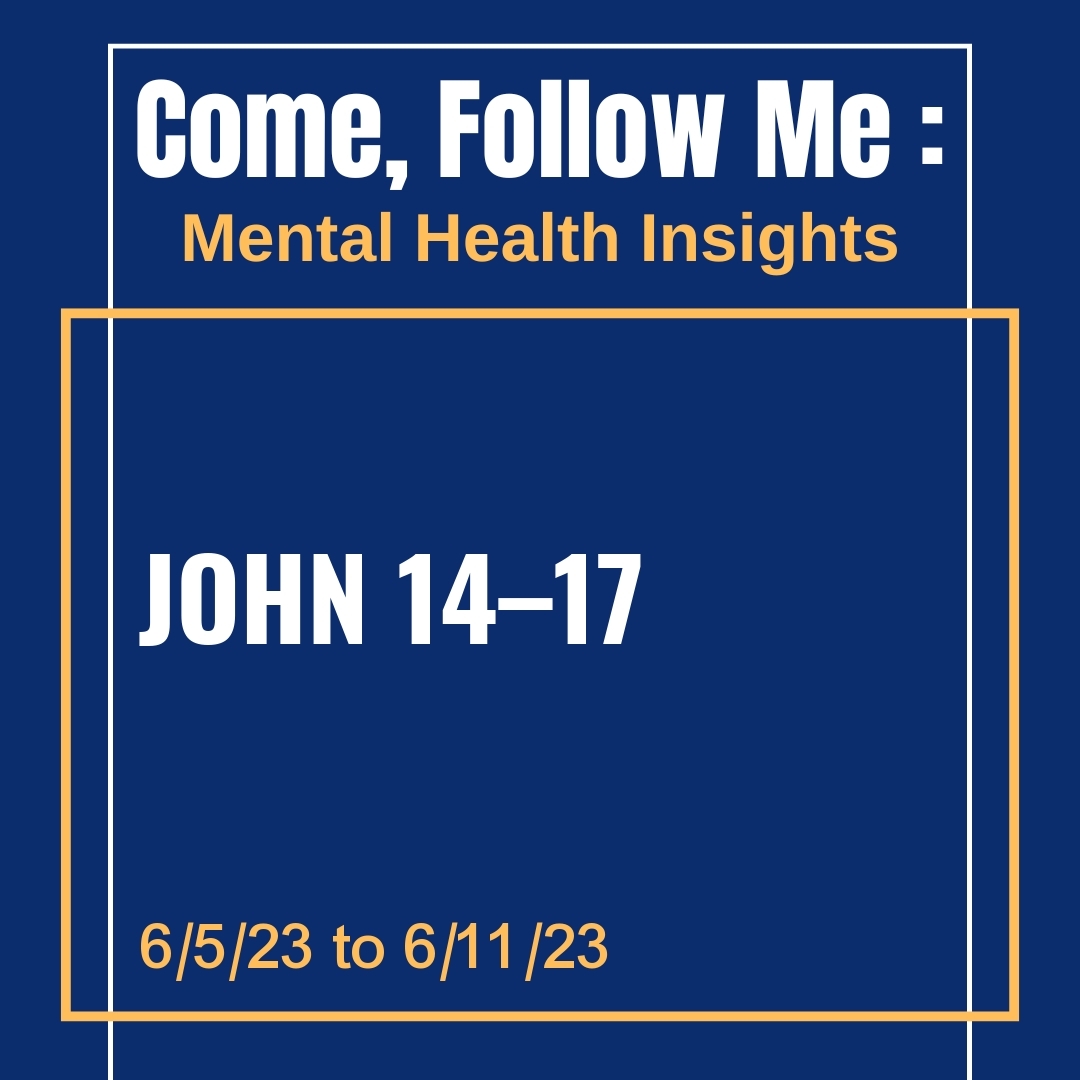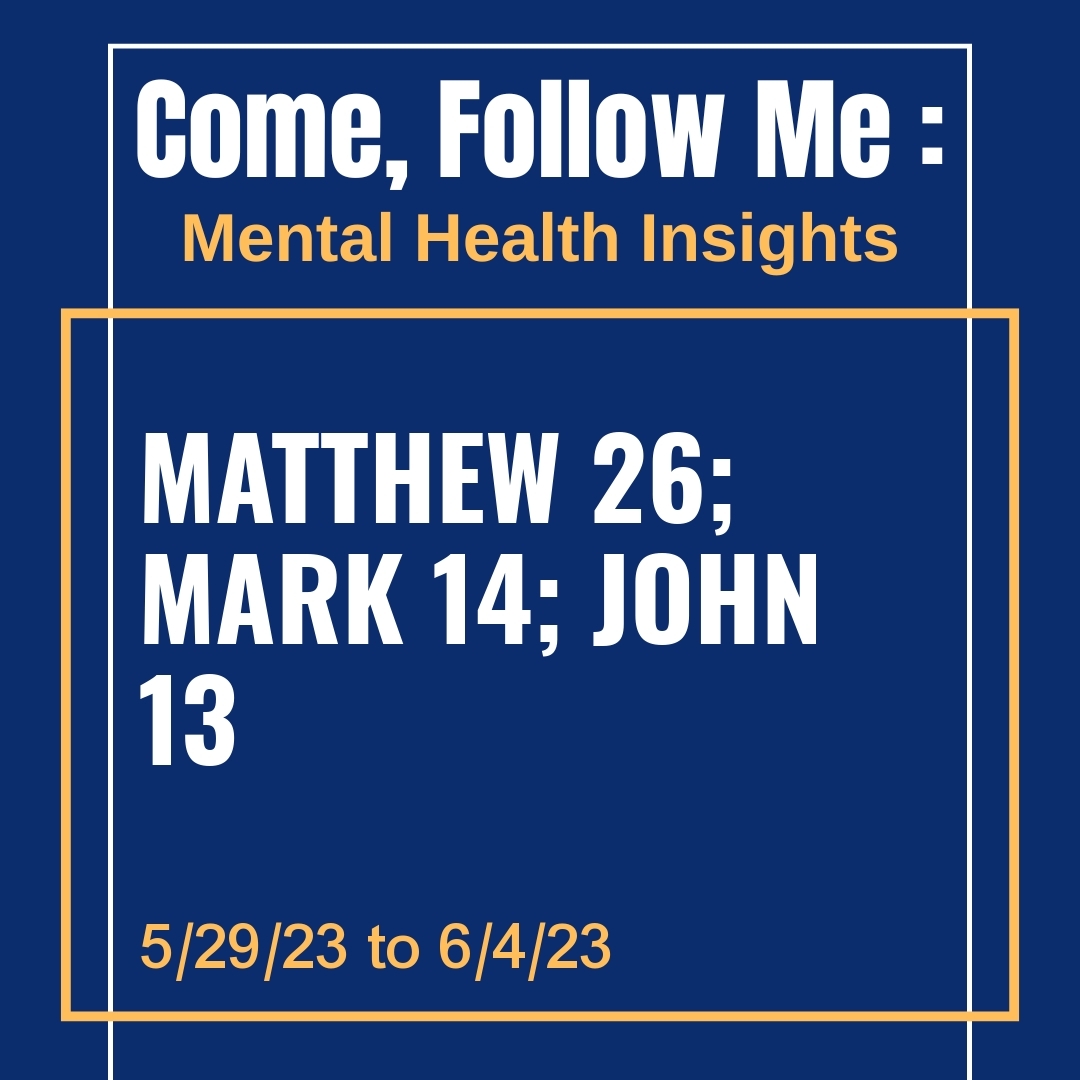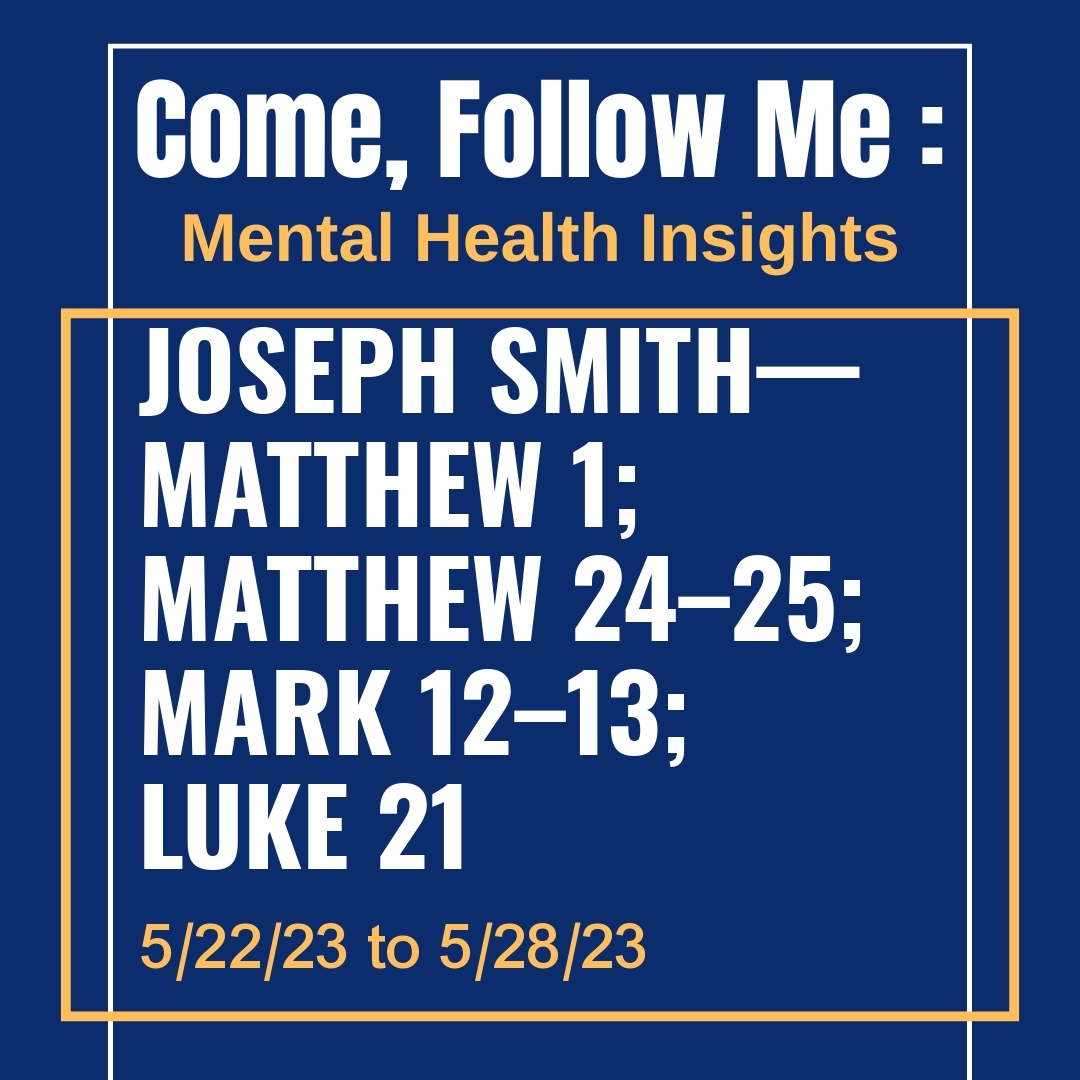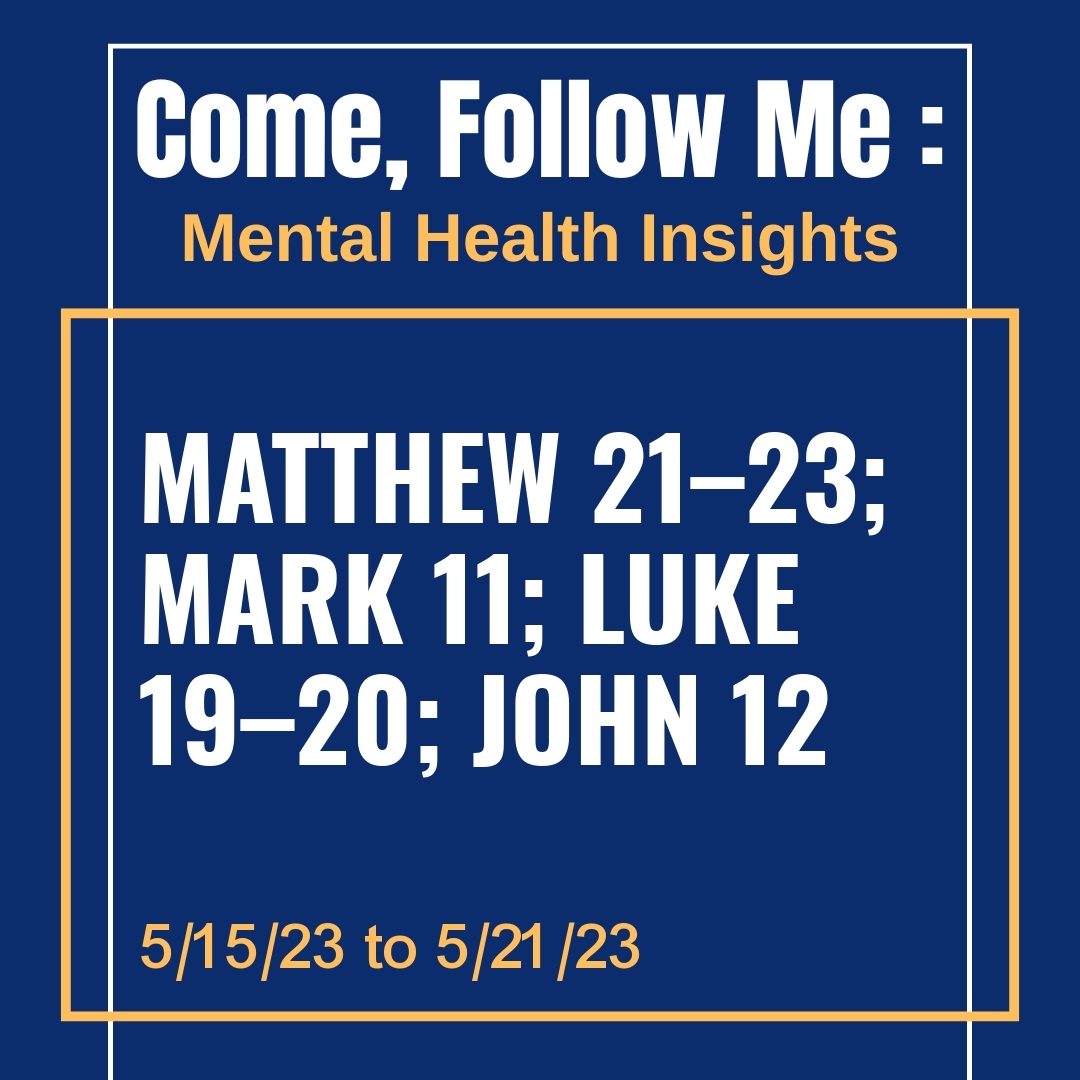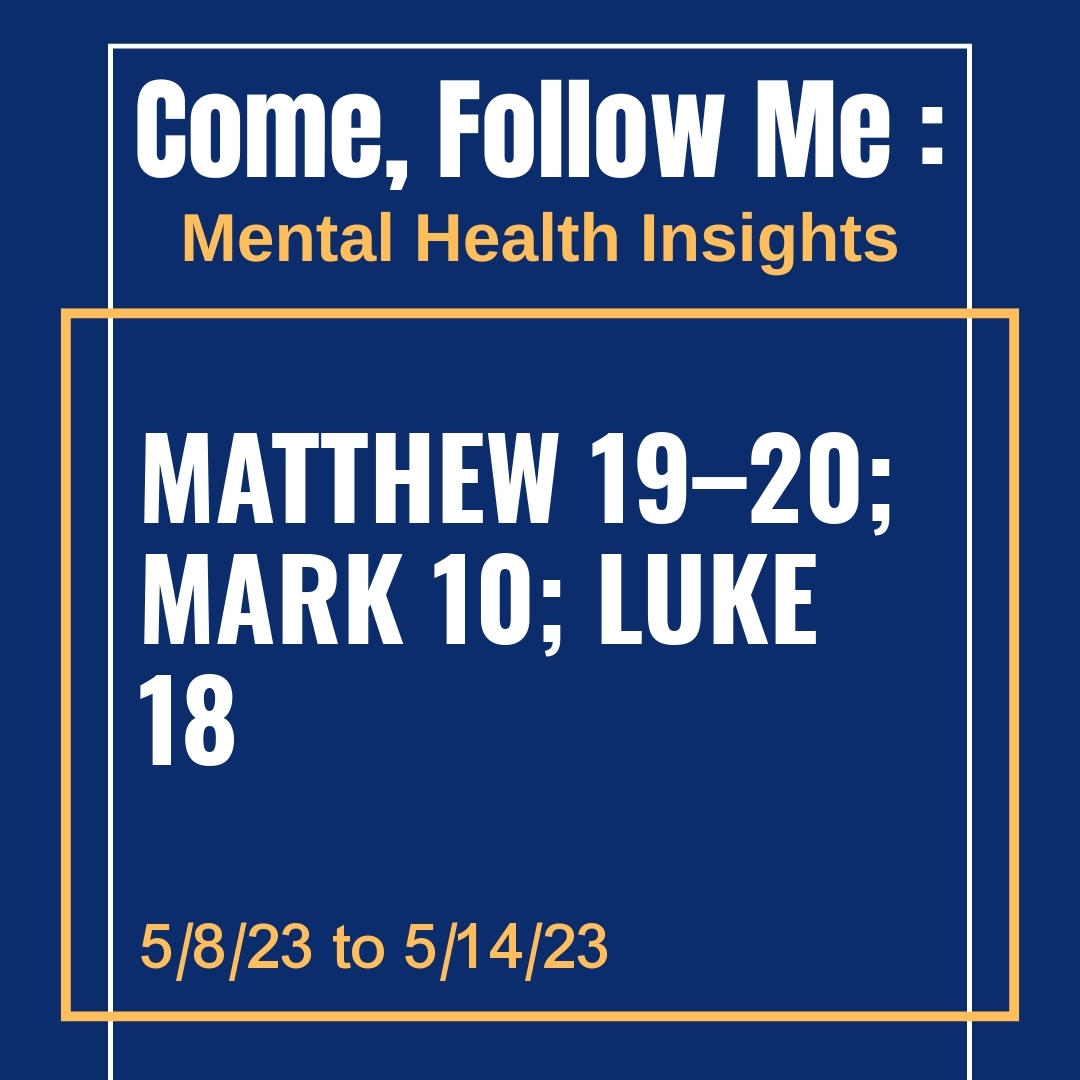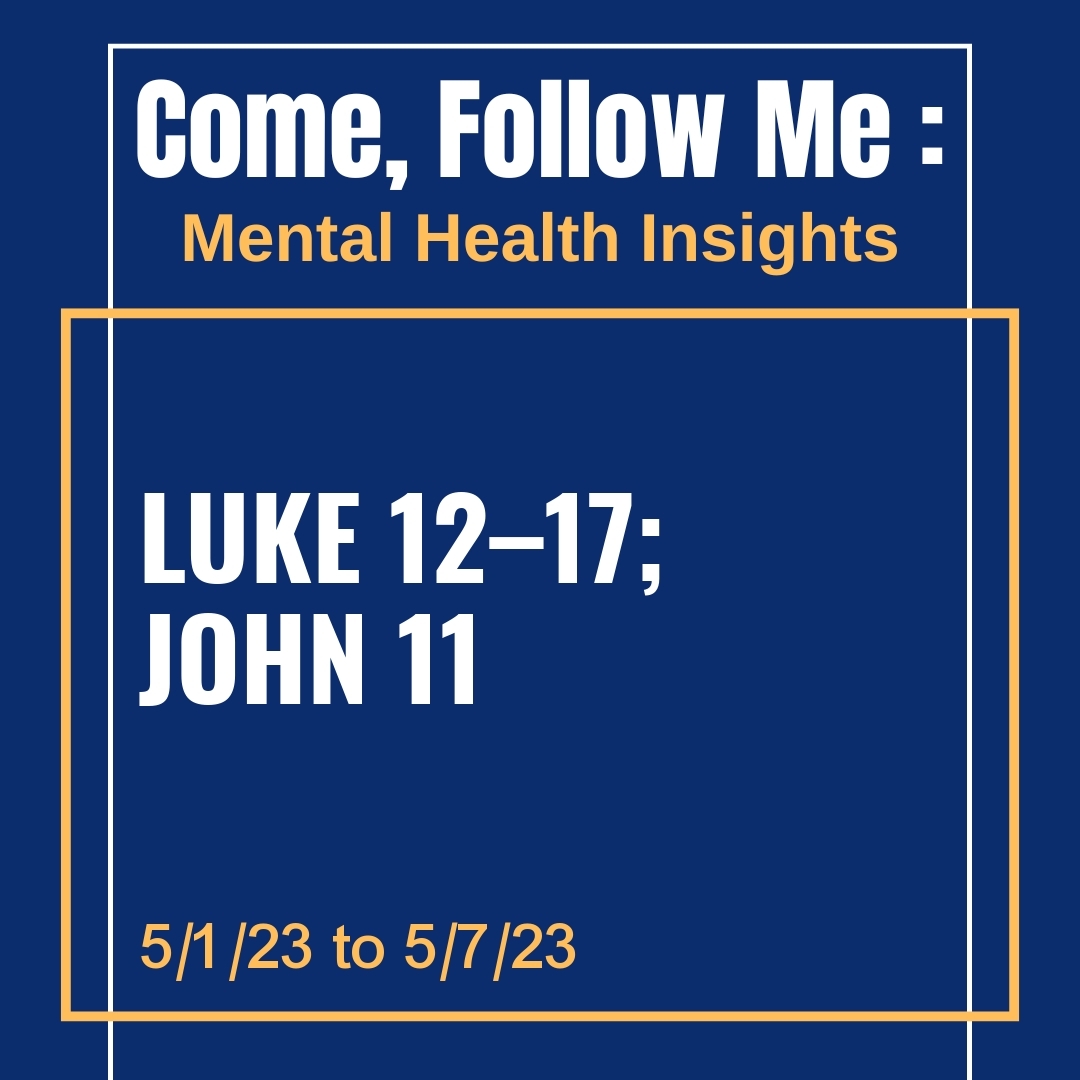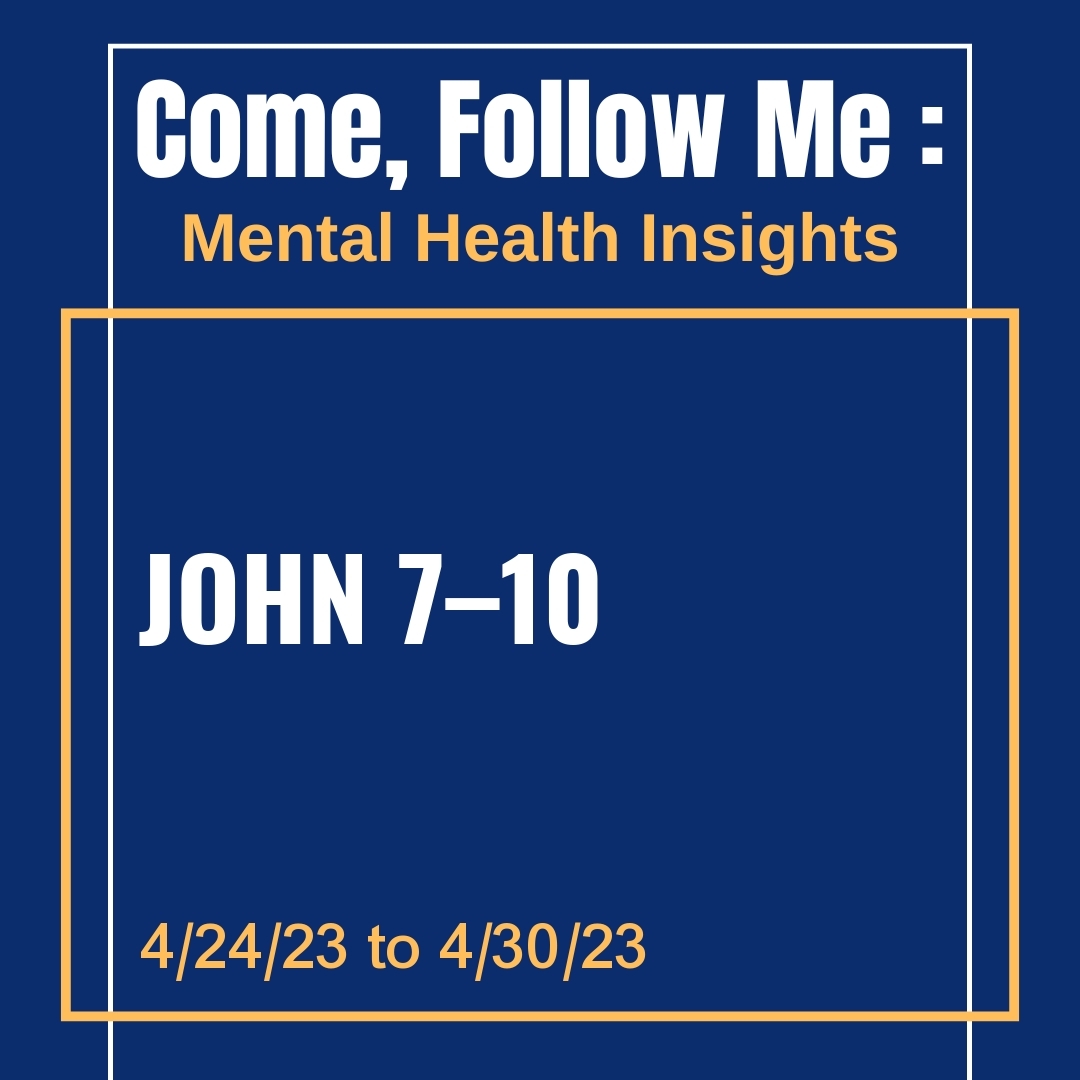Join Dr. David T. Morgan for a weekly discussion about some principles from the weekly Come, Follow Me lesson and learn specific applications to improve mental and emotional health.
In this episode we'll talk about Matthew 28, Mark 16, Luke 24, and John 20-21. We'll talk about the Savior’s resurrection and appearance to many. We’ll review the story of the apostle Thomas, who did not believe the testimony of his cohorts that Jesus had risen. We’ll talk about the importance of faith, the need to move forward despite having immediate results, and how this relates to the improvement of mental and emotional health. We’ll also discuss the Savior’s teachings to Peter about his identity and purpose. We’ll review how increasing our own understanding of identity and purpose can help us better deal with the emotional challenges we’ll face.
In this episode we'll talk about Matthew 27, Mark 15, Luke 23, and John 19. We'll talk about the crucifixion and death of Jesus Christ. We’ll review the account of Pilate and how his best instincts were to release Jesus without punishment. But as he was influenced by the voice of the people, he delivered the Savior to His death. We’ll talk about the problems that can happen from listening too much to the opinions of others and not exercising agency in righteousness. We’ll also discuss the concept of interpersonal boundaries. We’ll review how having good boundaries is critical to healthy relationships, and how increasing self-confidence can help improve boundaries with others.
In this episode we'll talk about Luke 22 and John 18. We'll talk about the ordinance of the sacrament and what makes it unique from other gospel ordinances. We'll discuss the idea of being "willing" to do something and how that impacts the process of change. We'll further address how being willing to change is a necessary element in making mental health progress. We'll also talk about the Savior's power and how He has the ability to heal us from our mental and emotional issues. This healing usually takes place by Him providing needed supports in our lives, encouraging our diligence, and having us walk a path that ultimately leads to a better situation.
In this episode we'll talk about John 14-17. We'll review how the gospel of John is often different than the other three gospels, focusing on unique events and providing deep insights for our spiritual and emotional development. We'll talk about the Savior's counsel during the Last Supper for his apostles to fear not and to have comfort. In the Savior's teachings, there are many suggestions that can help us increase peace and reduce anxiety in our lives. We'll talk about several of these suggestions and how they can be implemented. We'll further discuss how the gospel of Jesus Christ holds many keys to help us improve our mental and emotional health.
In this episode we'll talk about Matthew 26, Mark 14, and John 13. We'll talk about some of the events in the Last Supper and how Jesus revealed that one of his closest associates would betray Him. We’ll discuss the importance of the question, “Lord, is it I?” and how answering this question honestly can help us improve in our spiritual and emotional resilience. We’ll also talk about the importance of aligning our beliefs with truth. So many of our emotional problems happen because we believe untrue things about ourselves. As we learn to correct inaccurate beliefs and align our thoughts with revealed truth, we can have a more positive emotional experience.
In this episode we'll talk about Joseph Smith Matthew 1, Matthew 24-25, Mark 12-13, and Luke 21. We'll talk briefly about the Second Coming prophecies and how we need to heed the Lord's counsel to "fear not" and to take things a day at a time. We'll review the parable of the talents and the Savior's observation of the widow at the treasury. Both of these accounts help us understand the pointlessness of cross-comparison and how we need to do the best with what we've given. We'll also talk about how we need to have an appropriate balance between serving ourselves and serving others, and how the Holy Ghost can help us understand what that balance needs to be.
In this episode we'll talk about Matthew 21-23, Mark 11, Luke 19-20, and John 12. We'll discuss how these readings contain multiple examples of the importance of doing and not just believing only. We'll review the account of Zacchæus, a publican and Jew, who went to extra efforts to see the Savior. His effort was rewarded by the Lord. We'll discuss how our own efforts are often rewarded, and how we are almost always required to act first before the Lord will do His part. We'll also talk about the second great commandment, and how implicit in this command is an injunction to love ourselves. We'll review how developing healthy self-love and self-compassion can help mitigate emotional and mental health issues and can help us be more kind and accepting of others.
In this episode we'll talk about Matthew 19-20, Mark 10, and Luke 18. We'll talk about two accounts from these readings. First, we'll review the story of the blind men who sought healing from the Savior. We'll discuss how even though they were discouraged by others to continue their quest, they persisted. We'll talk about the principle of tenacity, which is a key element of emotional resilience, and how that can help us manage trials. Second, we'll review the story of the rich young ruler. We'll talk about the importance of making changes, even changes that are very difficult, to follow the Savior. We'll discuss how each of us usually has one or more things that, if we change, can help us make better emotional and spiritual progress.
In this episode we'll talk about Luke 12-17 and John 11. We'll review three separate principles. First, we'll talk about the importance of personal responsibility in our spiritual and emotional development. The Lord will rarely do for us what we can do for our ourselves, because He wants us to learn to exercise our agency in righteousness. Second, we'll discuss an oft-asked question I get, "How can I help my loved one choose to go to counseling or get other mental health help?" We'll review some scriptures in the parable of the prodigal son that are instructive. Third, we'll talk about how the Lord sometimes will delay His assistance to us for the purpose of building our faith. We'll discuss how if we can learn to appreciate this, we'll be able to deal with trials more effectively.
In this episode we'll talk about John 7-10. I love the gospel of John because it has unique insights and stories that are not usually found in the other gospels. We'll discuss two events the the Savior's life found in these chapters. First, we'll talk about the woman taken in adultery. We'll discuss the Savior's reaction to her behavior and how He did not condemn her. We'll talk about the importance of avoiding inappropriate self-condemnation. Second, we'll review the story of the blind man who was healed. We'll talk about how we often assume that, if something is wrong in our lives, we must have done something bad. We'll discuss how negative circumstances are not always the result of our choices, and how we can have greater faith in the Lord's plan for us.

